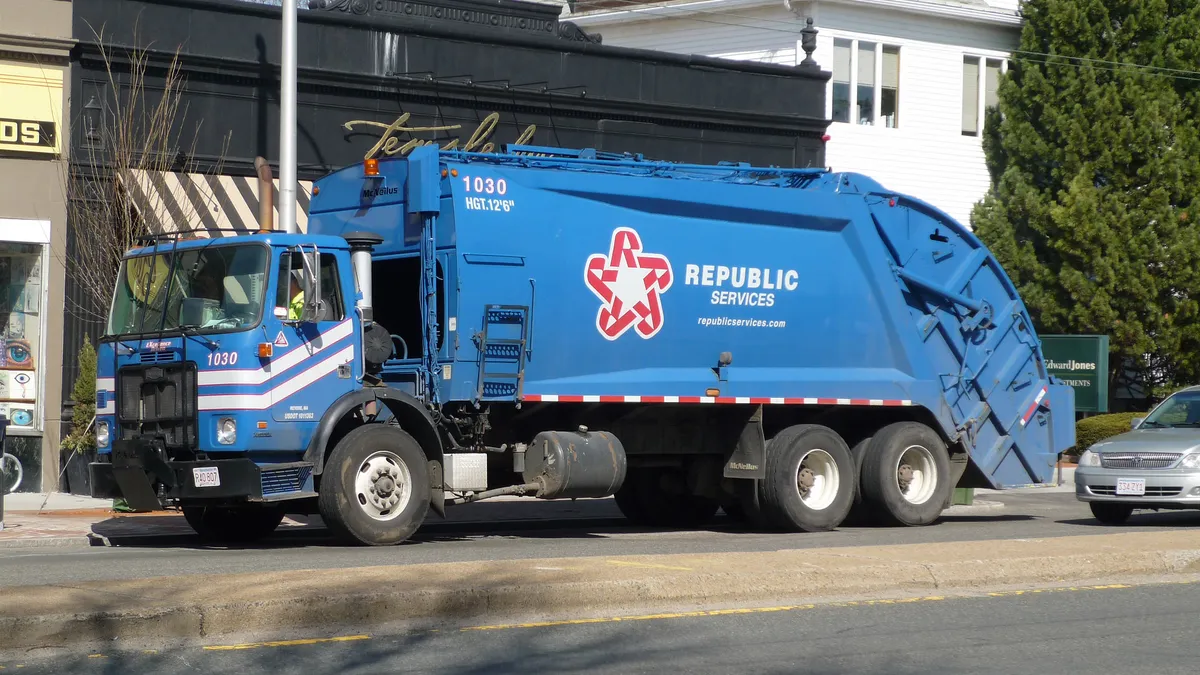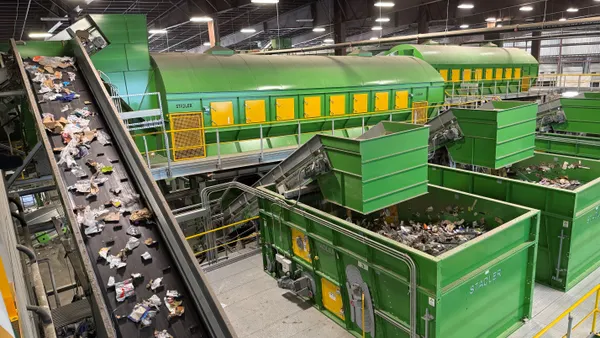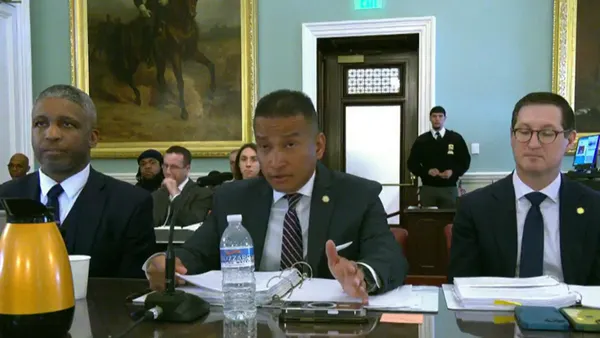Q3 Earnings
| Revenue | $2.6B |
| YoY Change | 4.1%▲ |
| Adjusted Net Income | $269M |
Republic Services marked the third quarter with a positive, if uneventful, earnings report, revealing incremental growth all around. Core price was 3.9%, average yield increased by 2.4% and landfill volumes were up 3%. Beyond some preliminary comments on 2019, one of the more noteworthy pieces is the company says it now has new numbers to support long-running projections that a different business model for recycling can actually pay off.
Recycling Revamp
- The company reported a new processing fee for collection customers — and higher prices for municipal collection in particular — have both contributed to revenue and yield growth. Plus, cost efficiencies are being gained at the MRF level with new technology.
- Some municipal customers — mainly in Texas, Illinois and Iowa — have transitioned to a new pricing model entirely. New customers have also proven willing to pay recycling costs at 90-100% comparability to solid waste costs.
- Following up the progress of price discussions with 1,100 municipal customers, CEO Don Slager said "we've already converted quite a few of them to a new model," and conversations continue with about 40%. This is down from 60% in the second quarter.
Despite all of this positive movement, recycling revenue was still down by $54.5 million YoY. That was driven largely by a 37% decrease in average commodity price (excluding glass and organics), though Republic, like others, can expect to start seeing more favorable comps on this going forward.
"As far as the commodity value, we have that flat into next year, right? So, if that comes back, we sort of get the automatic benefit. You've heard me say before, I hope it doesn't come back. I hope it just stays right where it is, because that's how we'll fix this recycling model," said Slager. "We don't want any of our people sort of getting weak in the knees. We need to push through to a new model that gives us predictable consistent returns in that business and then shares the upside with customers, if they do a good job and a responsible job with the contamination."
Company executives have been pushing this message in interviews and conference appearances for months now and in their view this is long overdue. Republic is also taking this as an opportunity to potentially part ways with municipalities that don't align with their cost expectations — as seen recently in Philadelphia — and may keep doing so as other contracts expire.
While Republic continues to tout its commitment to sustainability goals, this is yet another reminder that profitability comes first for a publicly-traded company. Losing some recycling contracts along the way is just part of doing business and considered largely nonregrettable by the company at a time when core solid waste profits are only going up.
Price Points
The pricing discussion was a big part of Waste Management's third quarter call, and that trend continued for Republic. Beyond recycling, company executives received multiple questions on where they saw pricing trends going for 2019. Slager said the company plans to price ahead of inflation in 2019 — likely in the 2.5-3% range — depending on market vertical.
- Moving more contracts to the company's preferred CPI model has also been an ongoing priority, with a target of getting $700 million worth of revenue converted under that category in the near future. As of the third quarter, Republic reports it now has approximately $625 million tied to a waste-related index or a fixed-rate increase of 3% or higher.
- "Higher CPI, we think that continues to fuel progress into 2019," said Slager. "Remember, when it comes to volume, we've got a little bit of our business to shed still with the brokered business. We're not afraid to walk away from bad contracts with municipalities ... We talked about non-regrettable losses, so that'll still be part of our 2019 story."
- On the landfill side, Slager said the goal is to continue raising prices as well. The growing cost of leachate management and scarcity of capacity in certain regions were cited as main factors. Though aside from tonnage that Republic collects itself, much of what's coming into the company's landfill sites is from municipalities on a restricted CPI index. The material that isn't may be more in the 3-4% price increase range and has room to grow.
Looking Ahead
- So far this year, Republic has paid $10.6 million for business divestitures and spent $133 million on tuck-in acquisitions. For the full year, it expects to hit the $200 million mark. Giving a preliminary look at 2019, Slager estimated annual M&A spend will be at least $150 million. "We've got a number of interesting acquisition candidates in the pipeline today," he said. "The good news is we're still paying a reasonable amount for these deals on a multiple basis post-synergy."
- Republic reported $203 million in dividends and stock repurchases for the quarter. In a preliminary look at 2019, the company said analysts could conservatively expect it to continue buying back in the 2% range.
- In another preliminary estimate, Republic expects 2019 free cash flow to be in the range of $1.125 to $1.175 billion. It will also be spending $75 million in tax cut savings on fleet equipment and employee facilities. That would put the company halfway toward its previous target of $200 million in total spending for those areas.














